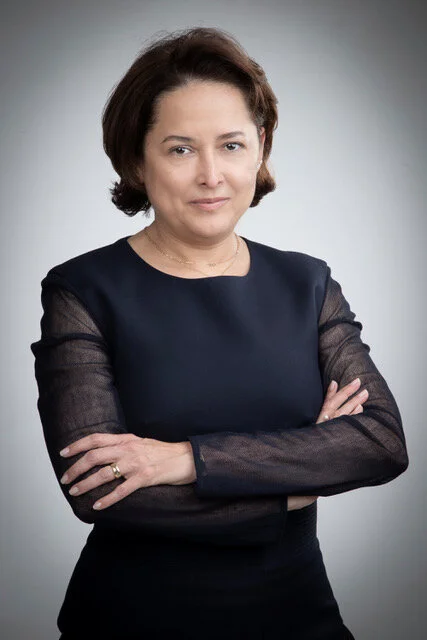Student Spotlight: Marcia Makdisse, MD, PhD, MBA
The Value Institute for Health and Care is interviewing students of the Master of Science in Health Care Transformation Class of 2021 to learn more about how they want to #TransformHealthCare. To learn more about the MS in Health Care Transformation program, follow the Value Institute for Health and Care on Twitter and LinkedIn or visit the degree website.
Today’s interview spotlights Marcia Makdisse, a scientific director at Way2Value, a company that designs and implements value-based health care projects and initiatives.
Why are you excited about the MS in Health Care Transformation Program?
I’m really excited to participate in the MS in Health Care Transformation program! I have been following short VBHC (value-based health care) executive education programs in both the US and Europe. I believe this is a unique and comprehensive program where students will have the opportunity to learn, connect, and share experiences with experts in the field and with each other... for a whole year...and I am sure such connections will remain for life.
What do you hope to get out of the program?
I hope to improve my skills as a health care executive and educator, particularly regarding VBHC implementation strategies, and contribute to health care transformation towards value in Portuguese speaking countries and Latin America.
How do you want to transform health care?
First of all, educating health care professionals, particularly those who do not speak English and thus have limited access to VBHC Education Programs. Secondly, I want to pilot implementation projects to provide evidence that VBHC is feasible in different contexts.
Anything else you want us to know about you or your health care journey?
I live in São Paulo, Brazil, with my family, but I was raised in Pará, a state located in the Amazon region where I got my medical degree. I moved to Sao Paulo for my residency training, and then I received a master's degree and a PhD in cardiology.
I’ve had two epiphanies in my career. The first was in 2005 when I had just got my PhD in Cardiology and was invited to serve as the Head of Cardiology at Einstein. I took the decision to apply to an MBA program instead of taking a natural next step and apply to a Post-doctoral program.
The second epiphany happened 10 years later when I was invited to manage Einstein’s Health Information and Medical Practice areas. That was when I came across value-based health care concepts, and I was so surprised that it took me ten years after the publication of Porter & Teisberg's Redefining Health Care to get in contact with this transformative strategy.
Next, I pursued an education in VBHC by attending short executive education programs such as, Strategy for Health Care Delivery (Harvard Business School, Prof. Michael Porter), The VBHC Green Belt Track Blended Learning and Certification (Prof. Fred van Eenennaam, The Decision Group/ VBHC Center Europe), and Implementing High-Value Health Care and Measuring What Matters (Value Institute for Health and Care). That's when I heard about the MS in Health Care Transformation, and it sounded like a dream come true to participate in a one-year comprehensive program on VBHC by the Value Institute for Health and Care. I immediately applied to the program!
Besides my "education journey" I also wanted to start implementing VBHC projects. So, in 2017, I was responsible for the implementation of Einstein's Value Management Office (VMO). We were able to implement ICHOM's standard sets for different medical conditions to build a business intelligence system to measure cost at the condition level and start designing bundles for episodes of care.
I also believe that we need to start generating data that are meaningful to Latin American stakeholders. I am currently leading a survey funded by The State of São Paulo Research Foundation (FAPESP), named "Value-Based Healthcare Systems in Latin America: An Evaluation of the State of Art and a Roadmap for 2025." Seventy hospitals from 5 countries (Argentina, Brazil, Chile, Colombia and Mexico) are participating. Our main hypothesis is that although the elements of VBHC are poorly adopted in a national level of the different countries, some organizations are advancing the VBHC agenda. There is a lot to learn from these initiatives, and lessons should be shared with various stakeholders in the region.
November 2020

